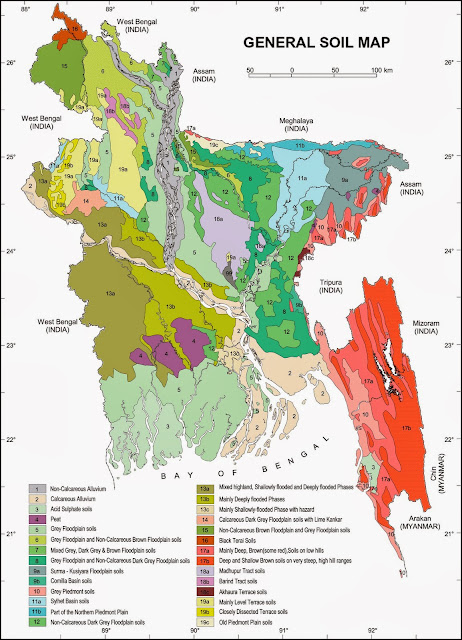Democracy and Human Rights in Bangladesh: A Historical Dilemma and Contemporary Challenge
Introduction:
Bangladesh,
a South Asian country, has a turbulent history regarding democracy and human rights.
Since its independence in 1971, the nation has experienced periods of
democratic governance alongside significant challenges to human rights. This
article delves into the historical dilemma faced by Bangladesh and sheds light
on the contemporary challenges it continues to grapple with.
Historical Dilemma:
Bangladesh
emerged from a liberation war seeking to establish a democratic system that
respects human rights. However, political instability, military interventions,
and authoritarian rule plagued the nation in its early years. The assassination
of Bangladesh's founding father, Sheikh Mujibur Rahman, in 1975 set the stage
for a tumultuous political landscape, often interrupted by coups and military
regimes.
Throughout
the 1980s and early 1990s, political power repeatedly shifted between elected
governments and military-backed regimes. These transitions often resulted in
curbs on civil liberties, press freedom, and the suppression of political
opposition. The absence of democratic governance and a lack of respect for
human rights posed significant challenges to Bangladesh's development and
reputation.
Contemporary Challenges:
1.
Freedom of Expression and Press Freedom:
Freedom of
expression and press freedom remain critical challenges in Bangladesh.
Journalists, bloggers, and activists face restrictions, threats, and violence
when criticizing the government or prominent individuals. The Digital Security
Act of 2018 has been criticized for stifling dissent and curbing online freedom
of expression.
2. Human
Rights Violations:
Bangladesh
has witnessed instances of human rights violations, including extrajudicial
killings, enforced disappearances, torture, and restrictions on the right to
assembly. Alleged perpetrators, including law enforcement agencies, often enjoy
impunity, undermining the rule of law and trust in the justice system.
3.
Political Violence and Intolerance:
Bangladesh
has witnessed sporadic outbreaks of political violence, particularly during
elections. Clashes between rival political factions, attacks on opposition
members, and the curtailment of political rights fuel a cycle of instability
and hinder the consolidation of democratic principles.
4.
Judiciary and Rule of Law:
The
independence of the judiciary remains a significant concern. Instances of
political interference, backlog of cases, delays in justice, and limited access
to justice for marginalized communities challenge the rule of law in
Bangladesh.
5.
Women's Rights and Gender Inequality:
Although
significant progress has been made in women's empowerment and gender equality,
disparities persist. Women continue to face discrimination, violence, and
limited access to education, economic opportunities, and political
participation. Addressing gender-based violence and ensuring equal rights are
ongoing challenges.
6.
Indigenous Rights and Minority Protection:
Protection
of the rights of indigenous peoples and minorities remains a concern. Land
grabbing, forced displacement, and discrimination against ethnic and religious
minorities hinder their socio-economic development and integration into
mainstream society.
Addressing the Challenges:
Addressing
the historical dilemma and contemporary challenges requires a multi-faceted
approach. It entails ensuring an inclusive, accountable, and participatory
democratic system, strengthening the rule of law, and promoting respect for
human rights. Key strategies include:
1.
Engaging in Policy Reforms:
Enacting and
enforcing legislation that upholds human rights, freedom of expression, and
press freedom while proposing amendments to laws such as the Digital Security
Act to safeguard online civil liberties.
2.
Strengthening Institutions:
Enhancing
the independence, efficiency, and capacity of institutions responsible for
upholding human rights, such as the judiciary, law enforcement agencies, and
human rights commissions. Ensuring their ability to hold perpetrators
accountable is crucial.
3.
Promoting Public Awareness and Civil Society Engagement:
Encouraging
civic education programs, fostering awareness of democratic principles, and
promoting active participation in political processes. Supporting civil society
organizations that monitor human rights violations, provide legal aid, and
advocate for marginalized communities is vital.
4.
International Engagement:
Engaging
with international development partners, human rights organizations, and
democratic nations to strengthen democratic institutions, promote dialogue, and
provide technical assistance in election processes, monitoring, and
capacity-building.
Conclusion:
A historical
dilemma and contemporary challenges have complicated Bangladesh's journey
towards consolidating democracy and upholding human rights. However, progress
has been made, and the country remains resilient in pursuing democratic ideals.
Addressing these challenges requires a concerted effort from the government,
civil society, and international actors to ensure a more inclusive,
rights-based society that values democratic principles and respects human
rights for all its citizens.


